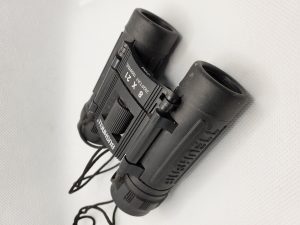Wiretapping, Eavesdropping, and Surveillance

What does the law say about wiretapping, eavesdropping and and Surveillance? Read on to find out more!
Last year, Dunwoody police thought they successfully busted up an alleged sex trafficking ring using surveillance and wiretapping. The defendants were charged with keeping a place of prostitution, pimping and violation of the Racketeer Influenced and Corrupt Organizations (RICO) Act. However, in early July of 2018 a Judge threw out that video surveillance. With a proper warrant law enforcement may use electronics to aid in investigations, so what happened in the Dunwoody sex trafficking case to get the surveillance thrown out?
- The warrant to install the cameras made claims about the investigation of a sex trafficking organization, however, during trial it was revealed that law enforcement did not have evidence that a sex trafficking organization existed when they applied for the warrant. This means the warrant lacked a vital piece of probable cause.
- The cameras were installed in a private home and under Ga and Federal codes it is unlawful for law enforcement to record a private residence where there is an expectation of privacy without a proper warrant.
- Sneak Peak warrants are unlawful in Ga.
- A sneak and peek search warrant (also called a covert entry search warrant or a surreptitious entry search warrant) is a search warrant authorizing the law enforcement officers executing it to effect physical entry into private premises without the owner’s or the occupant’s permission or knowledge and to clandestinely search the premises; usually, such entry requires a stealthy breaking and entering.
When officers want to use electronic means to record communications they must get authorization from a Superior Court judge. For authorization, the prosecutor must complete a written application and submit it to the judge. The judge decides whether the warrant is appropriate.
The warrant application must provide probable cause that a crime has been or will be committed. The warrant must describe all the investigative methods that have already been tried and failed. A wiretap cannot be authorized if other, less invasive means of investigation would work. If a judge authorizes a wiretap without ensuring that it is actually necessary, any evidence obtained may be suppressed at trial.
What about everyday citizens and electronic surveillance? The same law applies. The specific Georgia Codes states:
Under Georgia statute it is unlawful for a person intentionally, in a clandestine manner, to overhear, transmit, or record the private conversation of another that originates in a private place. [Ga. Stat. 16-11-62] However, a person may intercept a wire, oral or electronic communication where the person is a party to the communication or where one of the parties to the conversation has given prior consent. [Ga. Stat. 16-11-66] it is also unlawful for a person, through the use of any device, to observe, photograph, or record activities of others occurring in a private place out of public view, unless all persons observed or recorded consent.
Under this statute surveillance is permissible (i) when an owner or occupier of real property uses surveillance equipment on the property or in the area approaching the property, and the person recorder has no reasonable expectation of privacy, and (ii) where a person uses surveillance equipment for the purposes of security, crime, prevention, or crime detention in order to record the activities of person who are within the curtilage of the residence of the person recording the activities. [Ga. Stat. 16-11-62(2)]
When considering this statue, it is important to know that “clandestine” means secret. It is also important to know that intercept means communication that was meant for the intentional receiver, it does not mean you may secretly record someone without their knowledge, even if they are a willing participant in a private conversation with you. This means that even using your cell phone or listening with your ears, to a conversation that carries the expectation of privacy in a private place, could be grounds for a criminal conviction. As with the Dunwoody case, even though the video was thrown out of court, all arrested were convicted, including a Gwinnett County Assistant District Attorney. If you are convicted of illegal surveillance contact a lawyer immediately to make sure your rights are protected.
If you are facing criminal charges in Georgia due to any of these surveillance methods call us today for help with your case at 404-551-5684.









